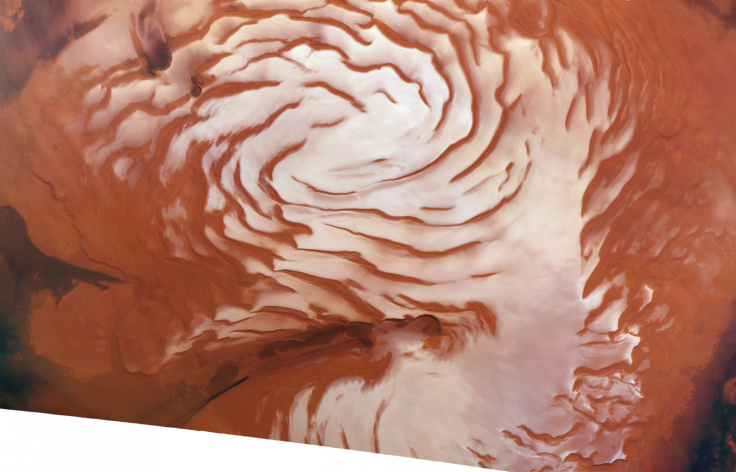Traces of ancient Ice Age discovered at Mars' North Pole

In the polar deposits of Mars, scientists have found evidence of an Ice Age on the red planet, about 370,000 years ago. They say these findings could improve current knowledge of climate science on Earth.
The study, published in the journal Science, is based on radar data collected by Nasa's Mars Reconnaissance Orbiter.
Analysing the structure of the polar cap, the scientists from the Southwest Research Institute found an accelerated accumulation rate of ice in the uppermost 100 to 300 metres.
"Radar observations of the ice cap provide a detailed history of ice accumulation and erosion associated with climate change," says lead author Dr. Isaac Smith.
Accumulation of ice
Like on Earth, long-term cyclical changes in the planet's orbit and tilt - which affect the amount of solar radiation it receives at each latitude – are behind ice ages on Mars.
Examining the the polar deposits, the scientists say the top 100 to 300-metre layers of ice show a stark change in properties between an ice age and an interglacial period. They have found evidence of erosion associated with an Ice Age, followed by changes in ice accumulation rate and wind patterns. This subsequent accumulation of ice indicates a change in climate - the ice age was over.
Measuring ice thickness at the poles, the scientists show that the accumulation amounts to about 87,000 cubic kilometres of ice since the end of the last ice age about 370,000 years ago, mostly at the planet's North Pole.
Understanding climate on Earth
These findings could be another resource for scientists back on Earth to understand the dynamics of climate change. Indeed, they provide a way to understand the accumulation history of the polar deposits as related to Mars movements, such as orbital eccentricity, axial tilt, and rotation around the Sun.
The scientists will thus be able to better model the Martian climate and prepare for future explorations. "Studying ice on Mars also is important to the future of human exploration of the Red Planet," Smith points out. "Water will be a critical resource for a martian outpost."
Additionally, these models could also serve as a "simplified laboratory for understanding climate science on Earth", the researchers say.
© Copyright IBTimes 2025. All rights reserved.






















